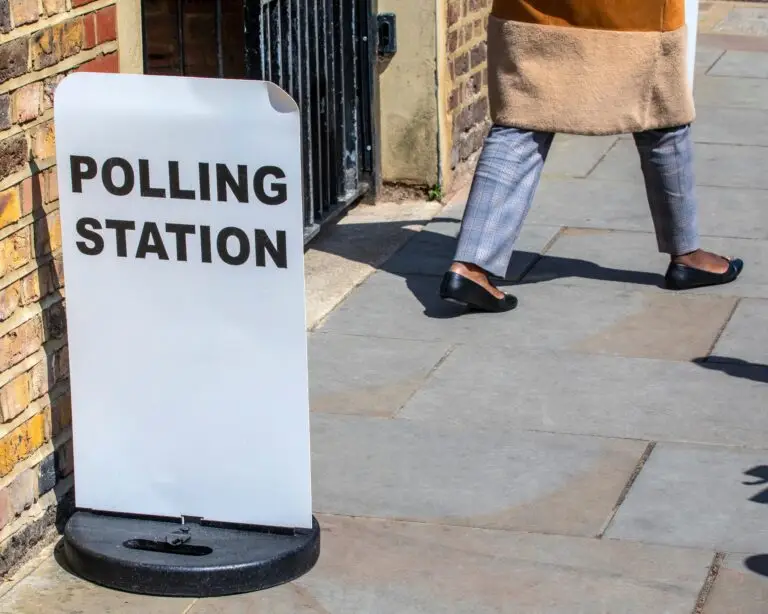For many it’s a nightmare scenario. Something untoward has happened at your organisation and the press have found out about it. You have just a few hours to prepare a response to the journalist’s deadline, and what you say now will both impact the evolution of the situation and your long-term brand reputation.
It’s a stressful situation no one wants to be in. There are things you do in advance to prepare for a crisis, but once it happens it can feel like an out-of-control rollercoaster ride. To help you maintain control and to get you through the ‘eye of the storm’, here are three top tips for handling a media crisis.
Find the facts and only ever speak the truth
When approached by a journalist with sensitive, damaging, or embarrassing allegations, it can be tempting to lie or obfuscate to try and ‘get away with it’. If you deny the allegation, perhaps the story won’t run – especially if the issue in question is currently private, or there’s no evidence to prove you were involved in wrongdoing.
However, as Prime Minister Boris Johnson (eventually) learned, “it’s not the crime that gets you, but the cover up”. Boris’s downfall over Pincher-Gate was a perfect example of how repeatedly changing your story and defence will erode public trust, undermine your position, and eventually make it impossible to continue with the status quo.
To avoid a similar fate, you should always tell the truth. There may be times when there is information you know but choose not to volunteer in your media response – perhaps because an investigation into the cause of an issue is still ongoing, and you don’t want to pre-judge or prejudice that work – and that is ok.
But you should never outright lie or deny something that you know to be true. To be found out in the lie will fundamentally undermine any future communications you issue. Once you’ve lost trust in a crisis scenario, it’s exceptionally hard, if not impossible, to regain it.
Remember, a lie doesn’t have to be purposeful – it could be that you issued an incorrect statement based on an assumption of what took place or because you had incorrect or poor-quality information to work from. Always find and corroborate the facts first, especially on the crucial details of what, when, why, and who was involved in a situation. Only once armed with the facts can you decide how best to respond publicly.
Get ahead of the story
You don’t have to wait for a journalist to uncover the situation – sometimes it’s best to announce it yourself, controlling the narrative and framing of the message from the start. In other cases, an incident might occur and information shared before you can control the message, but you can still think about how that story evolves and how your response should evolve to get ahead of it.
Too often organisations fail to predict how a crisis might grow or develop over time, and therefore fail to take action to minimise long-term reputational damage or reduce the likelihood of future adverse press coverage.
As an example, we look to Pret a Manger, the sandwich shop chain, who in July 2016 were embroiled in an allergy death. At the time, Pret did not individually label their sandwiches with an ingredient list, with this information instead only displayed on the store shelf. Had individual sandwiches been allergy labelled, the victim would never have died.
After two years of regular adverse press coverage driven by an understandably distraught family, the tragic death eventually went to Coroner’s Court in September 2018, generating daily negative press coverage for Pret. On day nine of the hearings, Pret finally announced that they would be labelling individual sandwiches with allergy information.
To me, this is a clear example of Pret failing to get ahead of the story. It was inevitable that either legally, through a Prevention of Future Deaths report; morally, having been responsible for the needless death of a teenager; or commercially, in response to customer outcry and boycotts from other allergy sufferers, that Pret would need to label their sandwiches. So why wait two years, prolonging the pain of the victim’s family, and being routinely criticised in the media?
For any organisation facing a major media crisis, it’s important to fully consider how the situation develops and evolves over time, what pressure you might face – legally, morally, and commercially – and what you can do to change the narrative. There are lots of ways to show your organisation is repentant, empathetic, has learned from its mistakes, and acted to prevent a repeat.
Drive your C.A.R. to safety
In preparing a public statement on a crisis, either for the media or in direct correspondence with your key stakeholders, you should deploy the C.A.R principle, an acronym for the key components of an effective crisis response.
Concern – most people recognise that mistakes and accidents happen, no matter how many safeguards are in place. When they do, it’s important to show compassion for the people impacted, recognising that something untoward has occurred or that there has been a failure, and that you understand the severity of the situation.
Action – to maintain public trust, it is crucial that you respond appropriately when something does go wrong. What you do may vary, depending on whether it’s hour one, day one, or week one of the crisis occurring – but you should always demonstrate that you are taking action in response to the issue, even if it’s just to investigate the concerns/incident.
Reassurance – depending on whether it’s a live and developing crisis, or one that has had a long-tail, you should always end your communications with a reassuring statement. Fundamentally, people what to be assured that whatever happened can’t happen again, therefore it is important to demonstrate the changes you have made to prevent a repeat of the original issue. If it’s too early for change to have occurred, instead make reassuring statements that you are committed to learning from the issue and that you will make changes in the future.
Responding to a crisis scenario is always a communications challenge. There is no silver bullet, and every issue requires a bespoke solution depending on the situation, your organisation, your sector, and what external pressure you may be under. However, the three tips above apply universally, so consider how to adapt your response accordingly.
And remember – your media response is only one part of an effective communications response. You also need to engage directly with the most important stakeholders to your organisation.





